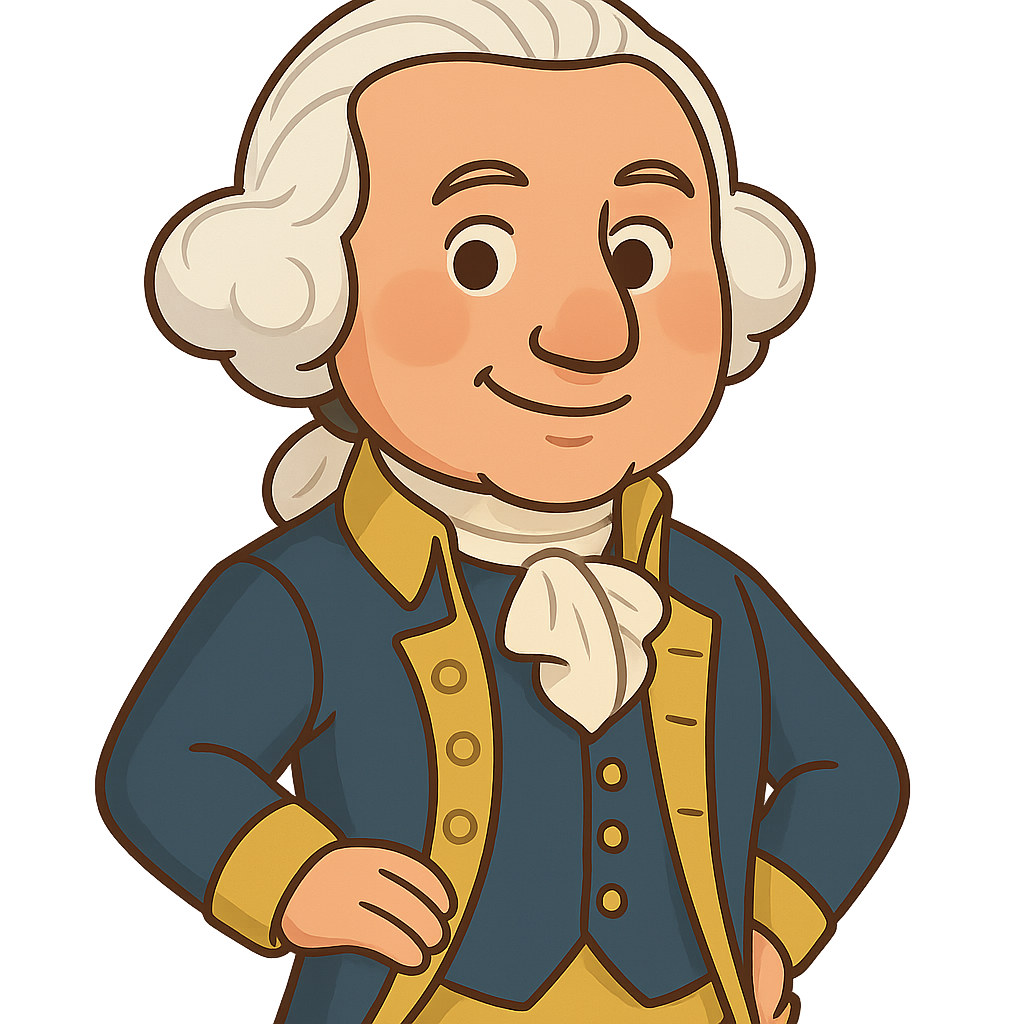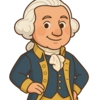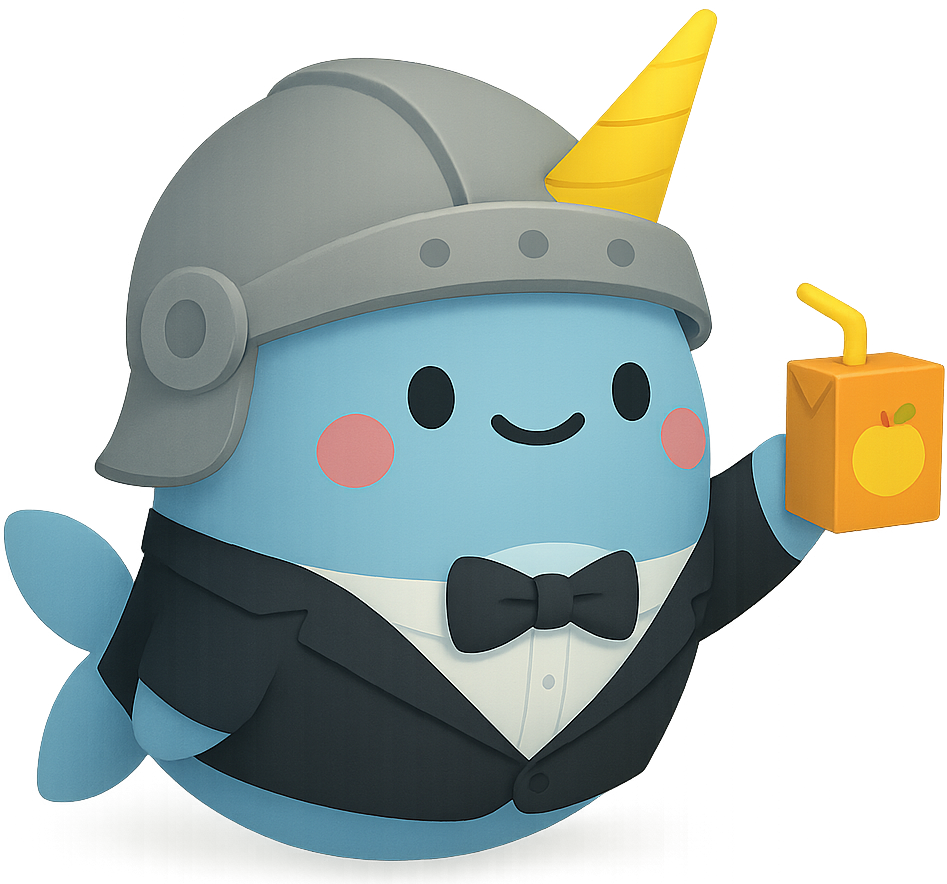George Washington
Hello, my name is George Washington, and I have a story to share with you about my life and the birth of a new nation. You may know me as the first President of the United States, but my journey began long before that, in the beautiful green lands of colonial Virginia. I was born on February 22, 1732, into a world where America was not yet a country, but a collection of colonies ruled by Great Britain, far across the Atlantic Ocean. My family owned a farm, which we called a plantation, and from a young age, I loved being outdoors. I spent my days riding horses through the woods, exploring the fields, and learning the rhythms of the land. While I didn't have as much formal schooling as some, I had a great passion for mathematics. The clean lines and precise answers of numbers and geometry fascinated me. This love for math led me to my first real job. When I was just a teenager, in 1749, I became a surveyor. My work took me deep into the wild, uncharted lands of the Virginia frontier. I would spend weeks at a time mapping the wilderness, learning to be self-reliant and disciplined. Surveying taught me more than just how to measure land; it taught me how to lead a team, how to face challenges with a calm mind, and it showed me the vast, incredible potential of this continent.
My life took a dramatic turn when I joined the Virginia militia as a young officer. The year was 1754, and a conflict known as the French and Indian War had begun. It was a struggle between Great Britain and France for control of North America. This was my first experience with military life, and it was a harsh teacher. I learned about the grim realities of battle and the heavy responsibility of leading men whose lives depended on my decisions. I made mistakes, but with each one, I gained wisdom and a reputation for being brave and determined. After the war ended, I returned to my beloved home, Mount Vernon, in 1759. That same year, I married the wonderful Martha Dandridge Custis, a kind and intelligent widow with two young children. Becoming a husband and a stepfather brought me great joy. For the next several years, I focused on being a planter, experimenting with new farming techniques to make Mount Vernon prosper. During this time, however, I grew increasingly concerned. Great Britain began imposing unfair taxes and laws on the American colonies without our consent. A feeling of injustice began to stir in my heart and in the hearts of my fellow colonists.
That feeling of injustice grew into a fire for independence. By 1775, the tensions with Great Britain had reached a breaking point, and the American Revolutionary War began. The leaders of the colonies gathered, and they chose me to be the Commander-in-Chief of the new Continental Army. I felt the weight of this responsibility deeply; the fate of our dream for a new, free nation rested on my shoulders. The years that followed were some of the most difficult of my life. Our army was a collection of farmers and merchants, not professional soldiers. We were often short on food, warm clothing, and supplies. The winter of 1777 at Valley Forge was especially brutal, with my soldiers suffering from cold and hunger. But their spirit never broke. I knew I had to keep their hope alive. We had moments of great triumph, too. On a freezing Christmas night in 1776, we crossed the icy Delaware River for a surprise attack on the enemy soldiers at Trenton. It was a daring move that resulted in a crucial victory and boosted our morale. For years, we fought on, driven by the belief in liberty. Finally, with the help of our French allies, we cornered the main British army at Yorktown, Virginia, and in 1781, they surrendered. The war was won.
With our independence secured, I believed my public service was complete. I longed to return to a quiet life at Mount Vernon with my family. But our new nation was fragile. The first government we created was too weak, and the states argued among themselves. So, in 1787, I was called to Philadelphia to lead the convention that would write a new Constitution—the very framework of our government that is still used today. Once the Constitution was approved, the country needed a leader. In 1789, the American people unanimously elected me as their first President. I was humbled and honestly a bit reluctant, as I understood the immense challenge ahead. Every decision I made would set an example, or a precedent, for all future presidents. I had to establish how the president should act, how the government should operate, and how our young country should interact with the world. I formed a group of advisors, called a cabinet, which included brilliant but often disagreeing thinkers like Thomas Jefferson and Alexander Hamilton. Guiding them and the nation through its first years was one of the most demanding tasks of my life.
After serving two four-year terms as president, I made a very important decision in 1797: I chose to step down and not seek a third term. I wanted to show the world, and my fellow Americans, that in a republic, power is not held by one person for life. It should be passed peacefully from one leader to the next. I finally returned to my beloved Mount Vernon, where I spent my final years as a farmer. My life came to an end in December of 1799, but my hopes for the nation I had helped create lived on. I always believed that the strength of the United States depended on its people staying united, valuing their liberty, and taking their duties as citizens seriously. The American experiment in democracy was just beginning, and its success would depend on future generations. My greatest hope is that my story inspires you to learn, to lead with integrity, and to always work toward creating a more perfect union.
Reading Comprehension Questions
Click to see answer


